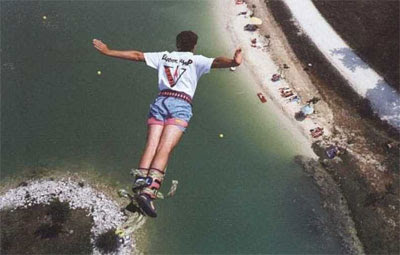For most public the beach is a place to relax, mainly when visited as part or a celebration. It's a place to forget the doubts of every day life look out to a with hope calm sea and loll out on a slip of lukewarm sand. So it seems shocking that on some beaches around the world, artists have been chosen to show some of the creepiest structures known to man that are sure to devastate the most hard-edged of tourists, especially at a time when the ramparts are down.
1. Hand Of Harmony, Homigot, Korea

If I were to wake up from dozing on a beach to see a giant's hand reaching out from the shallow waters in front of me, I'd be extremely susceptible to a spot of panic. The Hand Of Harmony has been worrying tourists in Korea since 1999. No word on the cause of death.
2. Sperm Whale, Scheveningen Beach, The Netherlands

Unlike your average Sperm Whale, this monster is made from wood, aluminum and polyester and was placed on Scheveningen Beach in July of this year. Those tourists not in the loop would be forgiven for placing their towels as far away as possible.
3. Another Place, Liverpool, England

A beach in Liverpool is home to dozens of stationary, zombie-like statues, all facing out to sea in various locations. To say it's a creepy scene is an understatement and one has to wonder just how many sunbathers have been forced to leave for another beach after being given the chills by these sculptures.
4. A Room Where It Always Rains, Barcelona, Spain

Juan Munoz’s 'Una Habatacio on Sempre Plou' (A Room Where It Always Rains) is possibly the creepiest piece of beach art on earth and consists of 5 stone weebles trapped in a cage on a strip of sand in Barcelona. The closer you get, the scarier it becomes, until you finally see their pained faces and drop your ice-cream.
5. Couple, Newbiggin-by-the-Sea, England

Just how many panicked emergency calls have been made due to this bizarre statue causing people to believe two giants are about to be smashed to death by waves is unknown. What we do know is that, under the right circumstances, this piece of art could easily cause mild palpitations and extreme confusion.



















































